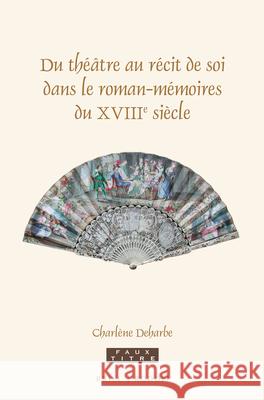Du théâtre au récit de soi dans le roman-mémoires du XVIIIe siècle » książka
Du théâtre au récit de soi dans le roman-mémoires du XVIIIe siècle
ISBN-13: 9789004313651 / Francuski / Twarda / 2016 / 408 str.
Tout semble opposer le theatre au recit de soi. Le premier se rattache aux arts du spectacle, tandis que le second releve de l'intime. Genre litteraire emblematique du XVIIIe siecle, le roman-memoires invite a depasser cette opposition. S'il place l'experience vecue au coeur de son ecriture, il s'approprie egalement le langage de la scene comique ou tragique au profit d'une fiction de l'interiorite. Ce livre montre ce que le roman-memoires doit au theatre, en etudiant comment son ecriture s'elabore a partir de differents emprunts et procedes caracteristiques de la scene. En s'inventant au sein d'une culture dominee par le gout du spectacle, ce genre legue ainsi a la litterature a venir les elements constitutifs d'un langage de l'intime. Theatre and fictional memoir are supposedly opposites: the former has to do with the performing arts, while the latter focuses on the intimate side of life. A literary genre emblematic of the eighteenth century, fictional memoir invites readers to move beyond this assumption. Although lived experience is at the heart of the memoir, such fiction also appropriates the language of comedy or tragedy for the benefit of a novel of interiority. This book highlights fictional memoir's debt to the theatre, while examining how its writing developed based on various borrowings and processes characteristic of the stage. By self-inventing within a culture dominated by enthusiasm for stage performance, this genre thereby endowed future literature with the constitutive elements of a language of the intimate.











